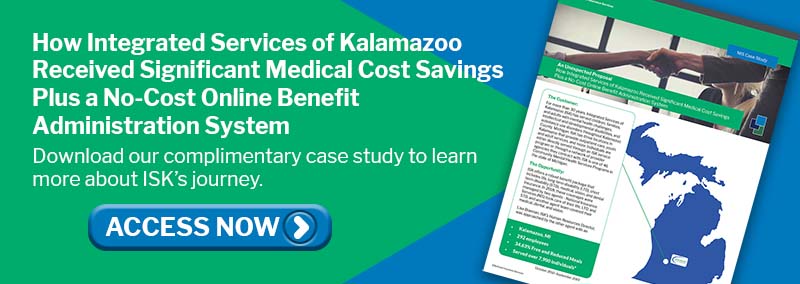4 minute read
Since the COVID-19 pandemic, employers have faced challenges in attracting and retaining employees. The labor market will cool slightly in 2024, but competition for talent will remain. Employers must adapt to labor and market trends to balance rising healthcare costs and inflation while providing valued employee benefits. Understanding this year's key employee benefits trends can help attract and retain talented individuals in an evolving labor market.
Key Trends in 2024
Increasing Personalization and Flexibility
In 2023, many employers struggled to meet the needs of their multigenerational workforce. According to a study by LIMRA, nearly a third of employers found this to be a primary challenge. In 2024, employers will increasingly offer personalized and flexible benefits to address the unique needs of individual employees. This may include things like flexible work arrangements, diverse wellness programs, broader medical coverage, convertible time off, customized retirement plans, flexible spending accounts, expanded leave, and personalized learning and development opportunities.
Prioritizing Preventive Care Services
In 2023, high inflation and medical care costs deterred employees from seeking preventive care, leading to long-term health risks and increased expenses. As employers tackle rising healthcare costs in 2024, the focus will be on promoting employee wellness, providing benefits education, and emphasizing the importance of routine care.
Managing Health Care Costs
Healthcare costs are expected to increase by 6% to 8.5% in 2024. This is the largest increase in over a decade. Employers may struggle to manage these rising costs while keeping benefits affordable for employees.
Many employers will plan and implement multiple cost-saving strategies to mitigate rising health care costs including modifying health plan designs, implementing pharmacy management strategies, incentivizing employees to seek cost-effective care options, expanding voluntary benefits offerings, tailoring benefits to meet employees’ specific needs, and incorporating health care analytics.
Focused on Belonging
While more employers invested in diversity, equity, and inclusion (DEI) initiatives in 2023, many employees, especially those from marginalized groups, continue to feel excluded. This undermines work performance, inhibits creativity, and increases the risk of burnout and absenteeism. In 2024, employers are expected to bridge the gap between existing DEI initiatives and employee impact by focusing on factors like organizational culture and leadership behaviors.
Some employers are introducing initiatives to foster belonging, such as celebrating employee achievements, encouraging open-door policies, creating time for employees to connect socially, encouraging supervisors to check in with their employees, and creating fair and transparent compensation and promotion practices.
Prioritizing Employee Mental Health
Employee mental health is a priority for employers in 2024 due to its impact on workplace productivity, retention, and morale. Many employees are experiencing mental health concerns such as stress, lack of motivation, and reduced focus, worsened by high inflation and financial stress. Employers are now considering employees' mental health when making important business decisions.
Employers can continue to prioritize employee mental health in 2024 with the following methods:
- Offering virtual therapy sessions
- Expanding mental health service offerings
- Expanding employee assistance program to address burnout and other mental health challenges
- Providing meditation and mindfulness resources
- Finding specialized mental health treatment from chosen vendors
- Conduct anti-stigma behavioral campaigns
- Invest in programs that build resiliency and improve coping strategies
Expanding Family-building and Reproductive Health Benefits
In 2024, more employers will expand reproductive health benefits to meet employee needs and stay competitive. Additionally, family-building benefits are increasingly offered and highly valued by employees looking to start or expand their families. These benefits not only support individuals but also enhance workplace engagement, productivity, and retention.
In the next year, many employers are expanding benefits offering to include family planning assistance, pregnancy, lactation, postpartum, and menopause support, child care subsidies, paid parental and adoption leave, surrogacy benefits, and flexible scheduling and remote and hybrid work options.
As reproductive health care laws continue to evolve, it is important for employers offering legal reproductive care benefits to assess the potential implications of these offerings.
Balancing Flexibility with Return-to-Office Mandates
As employers issue return-to-office mandates in 2024, they should balance employee expectations with the benefits of office work. Offering hybrid work options can be a compromise for happier and more productive employees. Additionally, employers are prioritizing safe and empathetic workplace environments to promote employee well-being during the return to the office.
Some employers may be offering incentives for in-person employees including commuter benefits, childcare benefits, and catered meals.
Summary
Understanding current benefits trends is essential for employers to provide employees with the desired and necessary benefits. In an evolving labor market, an attractive benefits plan is critical for maintaining a productive workforce and impacting organizational productivity, engagement, and revenue. Download the bulletin for more details.

